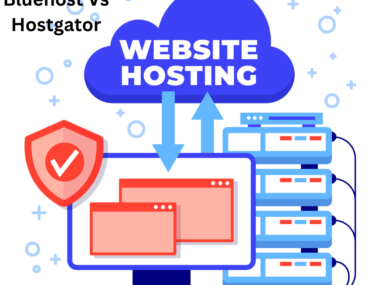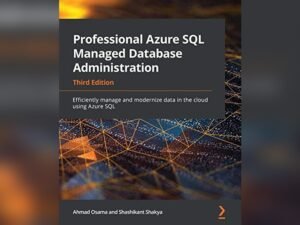Ensuring your business meets PCI compliance is crucial. Amazon AWS offers a reliable solution for PCI-compliant hosting.
Also Read
In today’s digital age, safeguarding sensitive payment information is paramount. Businesses must adhere to the Payment Card Industry Data Security Standard (PCI DSS) to protect cardholder data. Amazon AWS provides robust tools and services to help companies achieve and maintain PCI compliance.
From secure storage to controlled access, AWS supports businesses in meeting stringent security standards. By leveraging AWS’s reliable infrastructure, businesses can focus on growth while ensuring compliance. This blog post will explore how Amazon AWS can help your business stay PCI compliant, ensuring the safety of your customers’ information.
Introduction To Pci Compliance
Payment Card Industry Data Security Standard (PCI DSS) is a set of standards. It ensures companies process, store, and transmit credit card information securely. Compliance with PCI DSS is essential for any business handling credit card transactions.
Importance Of Pci Compliance
PCI compliance helps businesses protect sensitive cardholder information. It reduces the risk of data breaches. Non-compliance can lead to severe consequences. Penalties include fines and suspension of credit card processing privileges.
Compliance builds trust with customers. It assures them that their data is safe. This trust can translate into higher sales and customer loyalty.
Benefits Of Pci-compliant Hosting
- Enhanced Security: AWS offers advanced security features. These help protect against threats.
- Scalability: AWS allows businesses to scale their operations. It adjusts resources based on demand.
- Cost-Effectiveness: Pay only for what you use. AWS’s pricing model can save money.
- Reliability: AWS provides high uptime and data redundancy. This ensures continuous availability.
| Feature | Benefit |
|---|---|
| Advanced Security | Protects against threats |
| Scalability | Adjusts resources based on demand |
| Cost-Effectiveness | Pay only for what you use |
| Reliability | High uptime and data redundancy |
Amazon Aws And Pci Compliance
Amazon AWS provides a secure environment for payment card data. Ensuring PCI compliance is essential for businesses handling credit card transactions. AWS offers various features and services to help meet these requirements. This section highlights key features and services provided by AWS for PCI compliance.
Aws Pci Compliance Features
AWS offers a range of features to support PCI compliance. These include robust security controls and continuous monitoring. Encryption of data at rest and in transit is also available. AWS ensures secure access to services through Identity and Access Management. Regular audits and assessments are conducted to maintain compliance standards.
Aws Services For Pci Compliance
Several AWS services assist with PCI compliance. Amazon RDS provides a managed database service that supports encryption. AWS CloudTrail enables logging of account activity. AWS Key Management Service (KMS) manages cryptographic keys. Amazon VPC allows for network isolation and secure connections. AWS Config helps track changes to resources.
Setting Up Pci-compliant Hosting On Aws
Setting up PCI-compliant hosting on Amazon AWS ensures that your business meets the Payment Card Industry Data Security Standard (PCI DSS). This guide breaks down the steps into manageable tasks, focusing on the initial setup requirements and configuring security groups to help you achieve compliance efficiently.
Initial Setup Requirements
Before you start, ensure you have an AWS account. You will need to choose the right AWS services that are PCI DSS compliant. These services include Amazon EC2, Amazon RDS, and AWS Elastic Load Balancing.
Next, create an AWS account and log in to the AWS Management Console. Ensure that Multi-Factor Authentication (MFA) is enabled for your account. This adds an extra layer of security.
Set up Identity and Access Management (IAM) roles and policies. Restrict access to sensitive data and services. Assign roles based on the principle of least privilege.
Use the AWS PCI DSS Attestation of Compliance (AOC) document to understand which AWS services are PCI-compliant. This document helps you in planning and implementing your architecture.
Configuring Security Groups
Security groups act as virtual firewalls. They control inbound and outbound traffic to your instances. Configuring security groups properly is crucial for PCI compliance.
First, create a security group in the AWS Management Console. Go to the EC2 Dashboard and select “Security Groups” under the “Network & Security” section.
Assign a descriptive name to your security group. This will help you identify it easily. Add a detailed description outlining its purpose.
Next, configure the inbound rules. Only allow necessary traffic. For example, permit HTTPS (port 443) for secure web traffic. Block all other ports by default.
Configure outbound rules similarly. Allow essential traffic only. For instance, permit outbound traffic to your database server if needed.
Regularly review and update your security group rules. This ensures they remain relevant and secure.
Use AWS CloudTrail and AWS Config to monitor changes to your security groups. These services provide audit trails and ensure compliance with PCI DSS requirements.
Data Encryption Methods
Data encryption is crucial for PCI-compliant hosting on Amazon AWS. Protecting sensitive data demands strong encryption methods. In this section, we will explore data encryption methods. Specifically, we will discuss Encryption at Rest and Encryption in Transit.
Encryption At Rest
Encryption at rest protects data stored on physical or digital media. It ensures data safety if storage devices are compromised. AWS provides several options for encryption at rest. Amazon S3, Amazon RDS, and Amazon EBS support server-side encryption. Encryption keys are managed by AWS Key Management Service (KMS). This service simplifies the process of creating and controlling encryption keys. Data remains encrypted in case of unauthorized access.
Encryption In Transit
Encryption in transit protects data moving between systems. It ensures data safety during transfer over networks. AWS uses TLS (Transport Layer Security) to secure data in transit. TLS establishes a secure channel between clients and servers. It prevents eavesdropping and tampering during data transmission. AWS services like Amazon EC2, AWS Lambda, and Amazon RDS support TLS. Ensuring encryption in transit is crucial for PCI compliance.
Access Control Management
Access control management is crucial for maintaining security in PCI-compliant hosting on Amazon AWS. It ensures that only authorized users can access sensitive data and systems. Effective access control management helps prevent unauthorized access and potential data breaches.
Identity And Access Management (iam)
IAM plays a vital role in access control management on AWS. It allows you to manage users and their permissions. You can assign specific roles to each user based on their responsibilities. This way, users get access only to the resources they need. IAM also helps in monitoring user activities to detect any suspicious behavior.
Multi-factor Authentication
Multi-Factor Authentication (MFA) adds an extra layer of security. It requires users to provide two or more verification factors to access their accounts. This could be something they know, like a password, and something they have, like a mobile device. MFA reduces the risk of unauthorized access even if a password is compromised. Implementing MFA is essential for protecting sensitive data in PCI-compliant environments.
Regular Audits And Monitoring
Ensuring PCI compliance on Amazon AWS involves regular audits and constant monitoring. These practices ensure that your data remains secure. Regular checks help identify issues before they become serious threats.
Continuous Monitoring Tools
Amazon AWS offers several tools for continuous monitoring. These tools help track your system’s health and security. They provide real-time alerts for any suspicious activities.
- Amazon CloudWatch: Monitors your AWS resources and applications.
- Amazon GuardDuty: Detects threats and provides security insights.
- AWS Config: Tracks configuration changes and compliance status.
These tools ensure your system stays secure and compliant. They offer a robust solution for monitoring your AWS environment.
Conducting Regular Audits
Regular audits are crucial for PCI compliance. These audits examine your security practices and controls. They ensure your system meets PCI standards.
During an audit, you should:
- Review access controls and user permissions.
- Check for any security vulnerabilities.
- Ensure that encryption methods are up to date.
- Verify that all security patches are applied.
These steps help maintain the integrity of your data. Regular audits keep your system compliant and secure.
In summary, regular audits and continuous monitoring are essential for PCI compliance. Using AWS tools helps ensure your data remains protected.
Incident Response Planning
Effective incident response planning is vital for maintaining PCI compliance on Amazon AWS. A well-crafted plan helps you identify, manage, and mitigate security incidents swiftly. This ensures your data remains secure and your operations continue smoothly.
Creating An Incident Response Plan
To develop an incident response plan, you need to:
- Identify potential threats: Understand the types of incidents that could impact your AWS environment.
- Define roles and responsibilities: Assign specific tasks to team members for handling incidents.
- Establish communication protocols: Outline how information will be shared during an incident.
- Document response procedures: Create step-by-step guides for addressing different types of incidents.
Best Practices For Incident Response
Following best practices can enhance your incident response plan:
- Regular training: Conduct regular drills and training sessions for your team.
- Continuous monitoring: Use AWS tools to monitor your environment for unusual activities.
- Immediate action: Act quickly to contain and mitigate any detected threats.
- Post-incident analysis: Review and analyze incidents to improve your response strategies.
- Documentation: Maintain detailed records of incidents and responses for future reference.
Here is a simple table summarizing key actions:
| Action | Description |
|---|---|
| Training | Regular drills and sessions |
| Monitoring | Use AWS tools |
| Immediate Action | Act quickly on threats |
| Post-Incident Analysis | Review and analyze incidents |
| Documentation | Maintain detailed records |
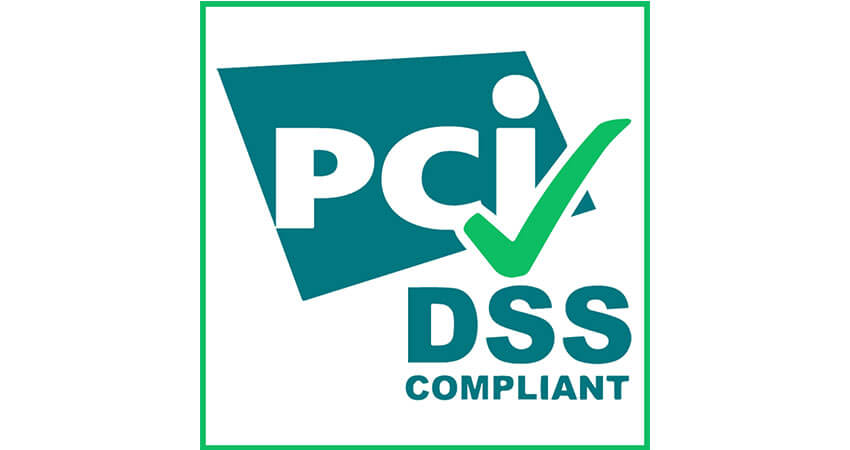
Credit: stackarmor.com
Cost Management Strategies
Managing costs while ensuring PCI compliance on Amazon AWS can be challenging. Businesses must prioritize secure hosting while keeping expenses in check. Effective cost management strategies can help achieve this balance.
Budgeting For Pci Compliance
Start with a clear budget plan for PCI compliance. Allocate funds for essential security measures. Include costs for AWS services, security tools, and expert consultations. A detailed budget helps avoid unexpected expenses.
Regularly review your budget. Adjust it based on changes in compliance requirements. Monitoring spending can prevent cost overruns. Use AWS cost management tools to track and manage expenses effectively.
Cost-effective Security Measures
Implement cost-effective security measures to protect cardholder data. Use AWS security services like AWS Shield and AWS WAF. These services offer robust protection without high costs.
Consider using AWS Trusted Advisor. It provides recommendations to optimize costs and enhance security. Follow best practices for data encryption and access control. Regular audits can help identify and fix security gaps.
Leverage AWS Auto Scaling to manage traffic efficiently. This reduces costs by adjusting resources based on demand. Automated backups and disaster recovery plans are also crucial. They ensure data safety without significant additional costs.
Case Studies And Success Stories
Amazon AWS provides robust solutions for PCI-compliant hosting. Many businesses have successfully implemented PCI compliance on AWS. These real-world examples show how companies can achieve PCI compliance effectively.
Examples Of Pci Compliance On Aws
One company, a major online retailer, used AWS to meet PCI standards. They implemented AWS Identity and Access Management (IAM) to control user access. This ensured only authorized personnel could access sensitive data.
Another example is a global payment processor. They leveraged AWS CloudTrail for monitoring and logging. This helped them keep track of all activities related to cardholder data.
A third case involves a healthcare provider. They utilized AWS Key Management Service (KMS) for data encryption. This secured their cardholder data both in transit and at rest.
Lessons Learned From Real-world Implementations
These case studies reveal several key lessons. First, using AWS IAM simplifies access management. Ensuring only authorized access is crucial for PCI compliance.
Second, monitoring and logging with AWS CloudTrail is essential. Keeping detailed logs helps in tracking and auditing data access.
Lastly, data encryption with AWS KMS is vital. Encrypting data protects it during transmission and storage. This is a fundamental requirement for PCI compliance.
Each of these examples shows different aspects of PCI compliance. They highlight the flexibility and effectiveness of AWS solutions.
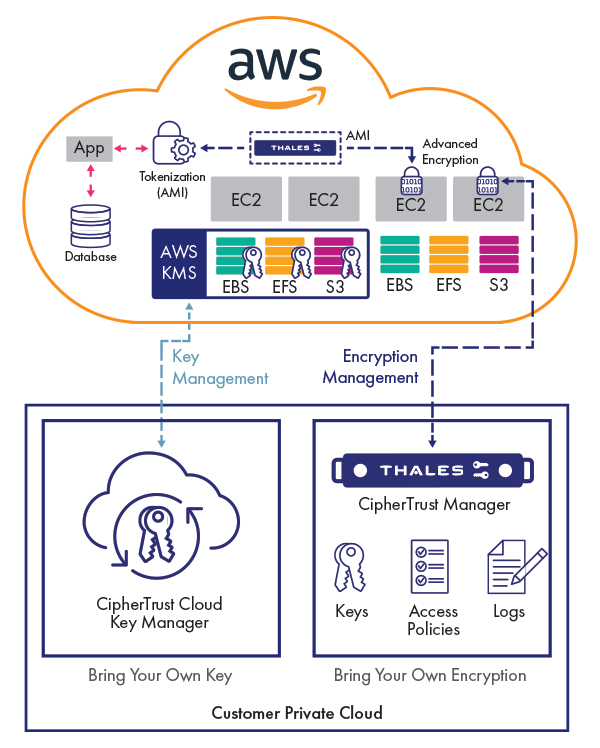
Credit: cpl.thalesgroup.com
Conclusion And Future Trends
The landscape of PCI-compliant hosting on Amazon AWS is continuously evolving. This section explores the conclusion and future trends of PCI compliance in cloud hosting. We will summarize the key points and highlight emerging trends in this area.
Summary Of Key Points
PCI compliance is crucial for businesses that handle payment card information. Amazon AWS provides robust tools and features to help meet PCI standards. Key points include the importance of securing cardholder data, maintaining a secure network, and regularly monitoring and testing networks. AWS offers services like AWS Shield, AWS WAF, and AWS CloudTrail to enhance security and compliance.
Emerging Trends In Pci Compliance
The future of PCI compliance in cloud hosting looks promising. One emerging trend is the adoption of AI and machine learning for enhanced security. These technologies can detect and respond to threats faster. Another trend is the increasing use of automation in compliance processes. Automation reduces human error and speeds up compliance tasks.
Cloud-native security solutions are also gaining popularity. These solutions integrate seamlessly with AWS services and provide real-time protection. Additionally, there is a growing focus on continuous compliance. This approach involves ongoing monitoring and assessment to ensure compliance at all times.
Multi-cloud strategies are becoming more common. Businesses use multiple cloud providers to distribute risk and enhance security. Lastly, the role of third-party auditors is expanding. They provide independent assessments and help businesses maintain compliance.
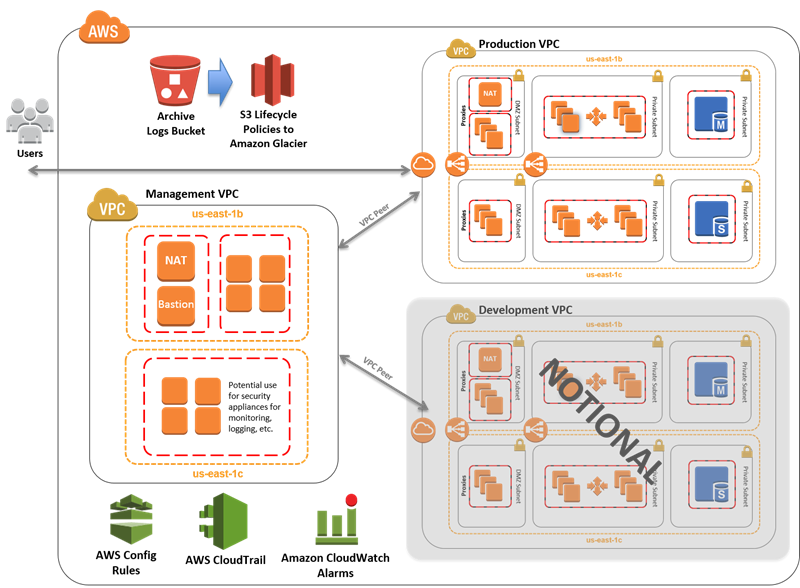
Credit: aws.amazon.com
Frequently Asked Questions
What Is Pci-compliant Hosting?
PCI-compliant hosting ensures that your servers meet the Payment Card Industry Data Security Standard (PCI DSS). It safeguards sensitive credit card information.
Why Choose Amazon Aws For Pci Compliance?
Amazon AWS offers robust security features. It provides scalable infrastructure and meets PCI DSS requirements, ensuring secure payment data handling.
How Does Aws Ensure Pci Compliance?
AWS provides encryption, access controls, and regular audits. It maintains a secure environment, helping businesses meet PCI DSS standards.
Can Small Businesses Use Aws For Pci Compliance?
Yes, AWS is scalable and cost-effective. It offers solutions tailored for small businesses to achieve PCI compliance efficiently.
Conclusion
Choosing PCI-compliant hosting on Amazon AWS ensures data security. Your business stays compliant with industry standards. AWS offers reliable, scalable solutions for your hosting needs. Protect customer information with top-notch security measures. Simplify compliance processes and reduce risks. AWS support is available to guide you.
Investing in PCI-compliant hosting builds trust with your customers. Secure your online transactions today. Enhance your peace of mind with AWS hosting.





